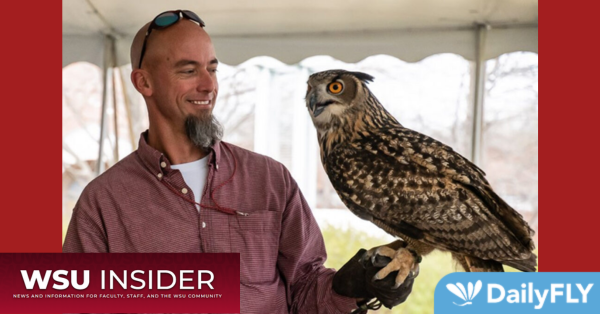Maslanka will reflect on some of his greatest challenges and successes, which include studying whale sharks and milking exotic animals, at the annual Halver Lecture in Comparative Nutrition, 5 p.m. Tuesday, Feb. 27, at Washington State University’s Pullman campus.
“In comparative nutrition, the problems change, not just from one day to the next, but hour to hour and minute to minute,” Maslanka said. “There’s no one place in a book where you can look up all the answers.”
A manager, a problem solver, and frequently a sleuth of nutritional mysteries, Maslanka has kept a logbook of his daily casework for more than 25 years. For the Halver Lecture, he will turn to its pages to detail some of the toughest and most interesting wildlife nutrition cases of his career.
Since 2007, Maslanka has worked at the National Zoo in Washington, D.C., home to more than 2,100 animals from nearly 400 species. He also oversees clinical nutrition at the Smithsonian Conservation Biology Institute in Front Royal, Va., where scientists investigate nutrition and health in populations of cheetahs, black-footed ferrets, loggerhead shrikes, scimitar-horned oryx, Przewalski’s horses, and other animals.
Some exotic animal diets can be developed through comparison to those of domestic animals.
“Others are brand new, out of the blue, and you have to learn a lot,” Maslanka said. “I’ve had opportunities to work with a lot of firsts.”
The National Zoo has one of the world’s largest collections of animal milk in the world. Maslanka’s team has milked birds, orangutans, and porcupines, among other animals. Scientists study the milk to improve their hand-rearing efforts, and
“Sometimes it’s necessary to bottle-feed baby animals in the collection,” Maslanka said. “If we’re faced with doing it, we’d better make sure we’re doing it right.”
Earlier in his career, while at the Georgia Aquarium in Atlanta, Maslanka was part of a pioneering effort to understand the diet of whale sharks. The length of a school bus and weighing up to 11 tons, these gentle giants open their six-foot mouths to filter plankton, shrimp, fish eggs, and other morsels from the ocean. Maslanka’s observations of free-ranging whale sharks in the Gulf of Mexico helped fine-tune diets for the few captive ones in the U.S.
“We’re always assessing body condition,” Maslanka said.
Measuring and weighing animals and examining their skin, coats, adipose tissues, or poop helps nutritionists gauge their health. In the case of whale sharks, that means swimming the huge fish into floating stalls for inspection and measurement as helpers flow water across their gills.
“You enjoy the animals that present you with problems you can solve,” Maslanka said. “Throughout the process you learn something about them.”
Then there are those few species whose challenges stubbornly refuse to be solved despite decades of work. One of Maslanka’s first dietary assignments as a resident at the Chicago-area Brookfield Zoo was to help minimize kidney stones in Asian small-clawed otters. The problem still challenges scientists today.
Maslanka encourages budding animal scientists to take an interest in nutrition beyond domestic animals and pets. More wildlife nutritionists are needed, but Maslanka wants newcomers to understand that the job is not easy. It’s complex but engaging and sometimes, a lot of fun.
“It takes uncommon dedication to be a lifelong learner,” he said. “We are passionate individuals who make discoveries every day to improve animal welfare and conservation.”
